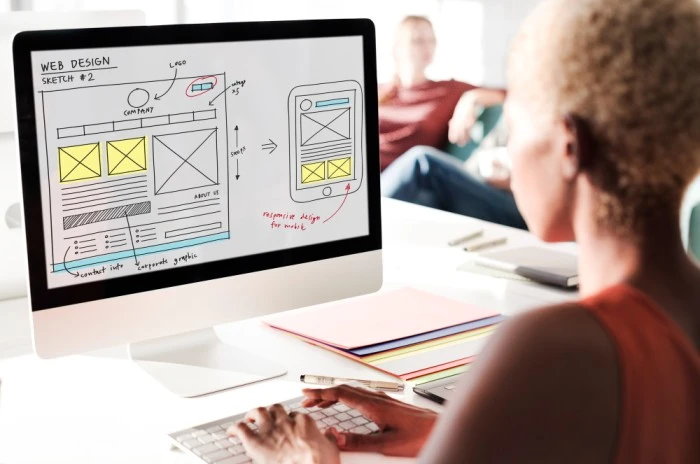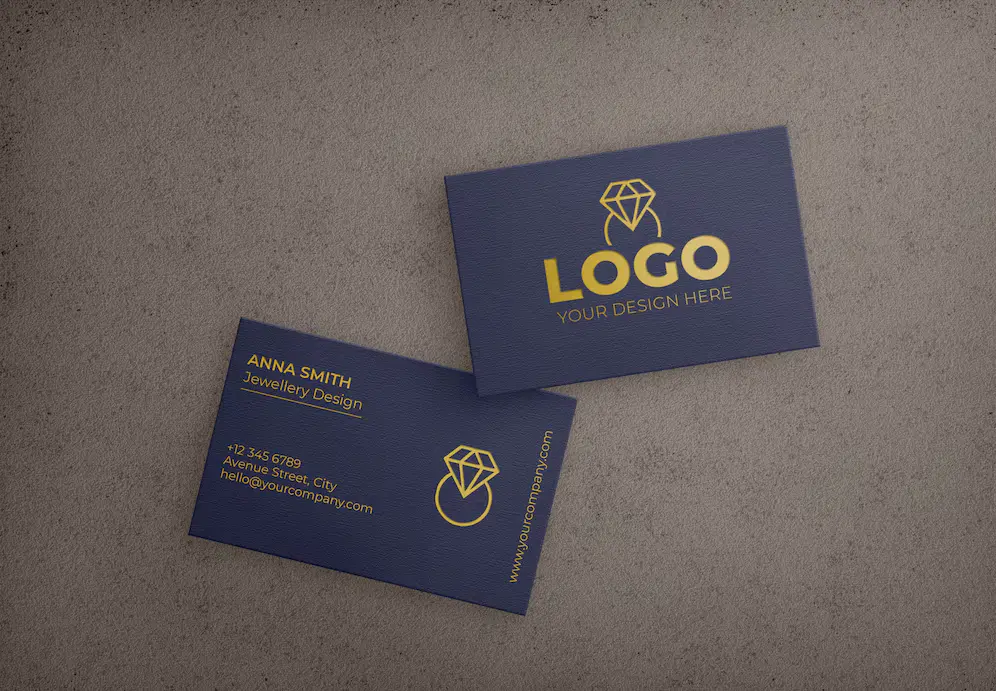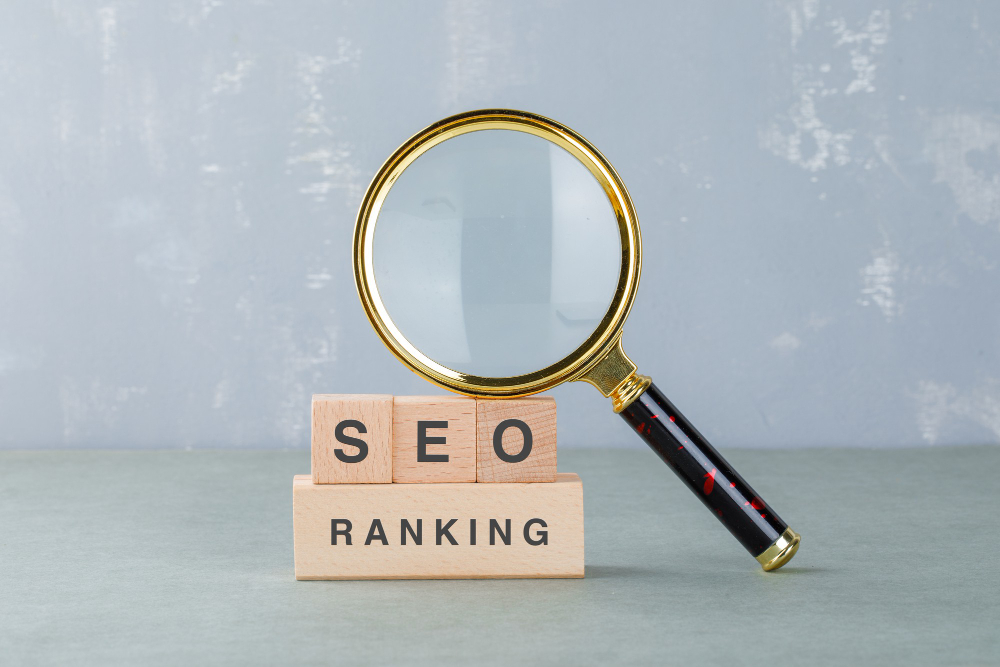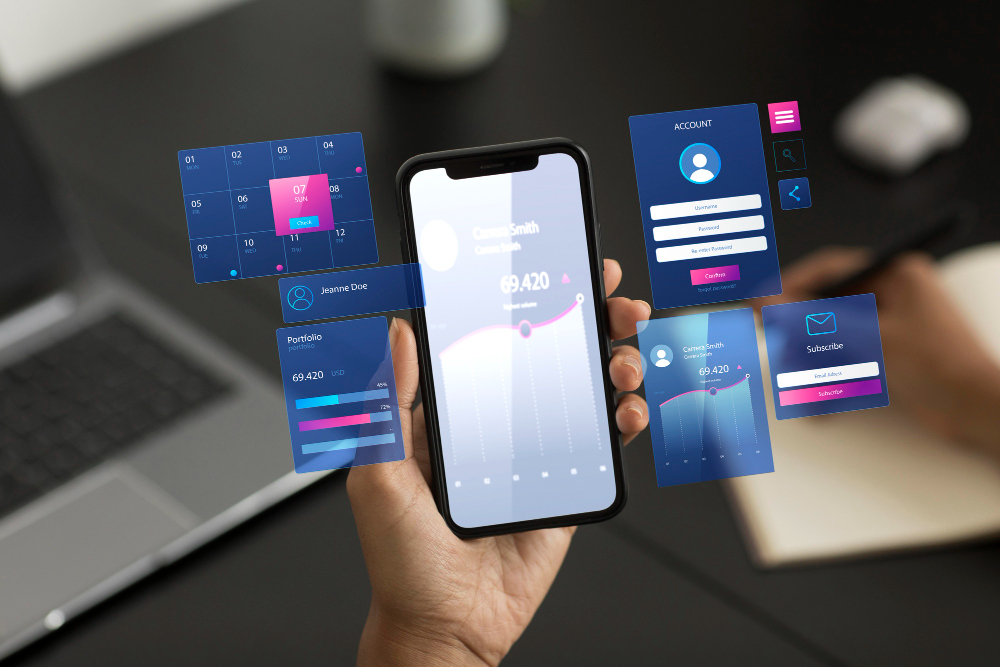A custom website design is crucial for creating a strong brand identity, establishing credibility, and improving the user experience.
In today’s digital age, a website is the most important online presence for a brand.
It serves as a virtual storefront, offering information about products and services, and making it easier for customers to connect with a company.

What is Custom Website Design?
Custom website design is like tailoring a suit for your brand's online presence. It's about creating a unique digital identity that reflects your brand's personality, values, and offerings. Just as a tailored suit fits perfectly, custom website design ensures your site stands out in the vast digital landscape.
Every element, from colors and fonts to layout and imagery, is carefully chosen to convey your brand's identity. But it's not just about looks; it's about functionality too. Custom design ensures your site is user-friendly, optimized for various devices, and equipped with features that enhance the user experience.
With custom website design, you have the flexibility to adapt and grow as your brand evolves over time. It's the ultimate tool for crafting a digital masterpiece that not only showcases your brand but also leaves a lasting impression on your audience. Custom design sets you apart from the crowd in the digital world, helping you stand out and succeed online.
Here are some key reasons why a custom website design is so important.
Table of Contents
ToggleUnique Brand Identity:
In today's crowded digital marketplace, it's more important than ever for brands to stand out and create a strong visual identity. One of the best ways to do this is through a custom website design.
A custom website design allows brands to create a unique and consistent visual identity, making it easier for customers to recognize and remember the brand.
One of the key benefits of a custom website design is the ability to incorporate specific brand elements such as colors, logos, fonts, and imagery. By using these elements consistently throughout the site, a brand can create a cohesive and recognizable look and feel.

For example, a brand may choose to use a specific color palette throughout its website, with colors that align with its brand values and personality.
Similarly, a custom logo that is prominently displayed on the website can help to reinforce the brand's identity and create a lasting impression on visitors.
By choosing custom fonts that align with the brand's style and personality, a brand can create a unique look and feel that is consistent across all pages of the website. This can help to create a more polished and professional appearance, and make it easier for customers to remember the brand.
Finally, custom imagery such as photographs, illustrations, and graphics can help to create a distinctive visual identity for a brand.
By using high-quality, visually striking images that align with the brand's messaging and values, a brand can create a strong emotional connection with customers and differentiate itself from competitors.
Credibility:
When it comes to establishing credibility with potential customers, having a well-designed website can make a huge difference.
In today's digital age, your website is often the first point of contact that people have with your brand. A custom website design that is professional and visually appealing can help to create a positive first impression, which is crucial in building trust and confidence with your target audience.
A well-designed website not only looks great, but it also communicates important information about your brand and what you have to offer.

This includes details about your products or services, your brand values, and any accolades or awards that you may have received.
By presenting this information in a clear and concise manner, a well-designed website can help to establish your brand's authority and expertise in your industry. Create a more engaging user experience by including features such as interactive elements, eye-catching visuals, and easy-to-use navigation.
By making it easy for users to find the information they need and engage with your brand in a meaningful way, you can create a more positive and memorable experience that encourages users to return to your site in the future.
By creating a positive first impression and providing a user-friendly experience, you can make potential customers feel more confident in your brand and more likely to choose your products or services over those of your competitors.
Improved User Experience:
A custom website design is an essential element of creating a positive user experience for customers.
When it comes to navigating a website, customers want an experience that is easy, intuitive, and enjoyable. A well-designed site with a clear and intuitive navigation structure can improve the overall experience, leading to increased engagement and conversions.
One of the key benefits of a custom website design is the ability to create a navigation structure that is tailored to the needs and preferences of the brand's target audience. By organizing information in a clear and logical manner, customers can quickly and easily find the information they need.

For example, a brand may choose to use dropdown menus to organize information by category, making it easy for customers to find the products or services they are looking for.
A search bar can also be a helpful tool for customers who are looking for specific information or products. By including prominent calls to action throughout the site, such as "Sign Up" or "Buy Now," a brand can encourage customers to take action and increase conversions.
In addition to improving navigation, a custom website design can also improve the overall visual appeal of the site.
By using a clean and modern design with easy-to-read text and visually appealing images, customers are more likely to engage with the site and spend more time exploring its content. Furthermore, a well-designed site can also be optimized for mobile devices, ensuring that customers can easily navigate the site on their smartphones or tablets.
This is especially important given the increasing number of customers who are accessing websites on their mobile devices.
By creating a clear and intuitive navigation structure, optimizing for mobile devices, and using visually appealing design elements, brands can create a positive and memorable experience for customers that encourages them to engage with the site and take action.
Search Engine Optimization (SEO):
One of the key benefits of optimizing a custom website design for search engines is the ability to attract more organic traffic. By using targeted keywords throughout the site, a brand can improve their rankings on search engine results pages (SERPs) and make it easier for potential customers to find them.
By incorporating keywords, meta tags, and other optimization strategies into the site design, a brand can improve their visibility and attract more potential customers.
For example, a brand that sells running shoes may choose to optimize their website with keywords such as "running shoes," "sneakers," and "athletic footwear." By using these keywords in the website's content, meta tags, and URL structure, the brand can improve their rankings on SERPs for these terms, making it easier for potential customers to find them.

In addition to keywords, meta tags can also be used to optimize a custom website design for search engines. Meta tags are snippets of code that provide information about the content on a website to search engines.
By including relevant meta tags such as title tags, description tags, and header tags, a brand can improve their visibility on SERPs and attract more clicks from potential customers.
Furthermore, other optimization strategies such as using alt tags for images, creating a mobile-friendly design, and ensuring that the site loads quickly can also improve search engine visibility and drive more traffic to the site.
Mobile Responsiveness:
A mobile-responsive design means that the website is designed to adjust its layout based on the size of the screen it's being viewed on This ensures that the website looks and functions great, no matter whether it's viewed on a desktop computer, tablet, or smartphone..
With the increasing number of people accessing the internet through their mobile devices, having a mobile-responsive website is more important than ever.
One of the main benefits of having a mobile-responsive custom website design is that it improves the user experience.

When a website is optimized for mobile devices, it becomes easier to navigate and interact with on smaller screens. This includes features such as larger buttons, simplified navigation menus, and easy-to-read text.
By creating a seamless and user-friendly experience for mobile users, brands can keep customers engaged and reduce the likelihood of bounce rates.
Another benefit of having a mobile-responsive website is that it can help drive more traffic to the site.
With Google's mobile-first indexing, websites that are optimized for mobile devices are more likely to appear higher in search engine results. This means that brands that have a mobile-responsive website are more likely to attract organic traffic and potentially gain new customers.
Furthermore, having a mobile-responsive website can also improve the brand's overall reputation. When customers are able to easily access and interact with a brand's website on their mobile device, it creates a positive impression and can lead to increased brand loyalty and customer satisfaction.
FAQs on Custom Website Design for Brand Identity
Custom website design is essential for establishing a strong brand identity online because it allows businesses to create a unique digital presence that accurately reflects their brand personality, values, and offerings.
By designing a website from scratch, tailored to specific brand requirements, businesses can ensure consistency across all online touchpoints, leaving a lasting impression on visitors and fostering brand loyalty.
A tailored website design plays a crucial role in brand recognition and differentiation by enabling businesses to stand out in a crowded digital landscape.
Customized elements such as color schemes, typography, imagery, and layout help reinforce brand identity, making it easier for customers to recognize and remember the brand amidst competitors.
Key elements of custom website design that enhance brand visibility and memorability include a cohesive visual identity, intuitive navigation, compelling storytelling, and seamless user experience.
By incorporating these elements into the design process, businesses can create a website that not only captures attention but also leaves a lasting impression on visitors, increasing brand recall and engagement.
While pre-made website templates offer convenience and affordability, they often lack the flexibility and uniqueness required to accurately represent a brand's personality and values.
Custom website design allows businesses to tailor every aspect of their website to align with their brand identity, ensuring a consistent and authentic representation across all online channels.
Investing in custom website design is a strategic decision that aligns with long-term brand growth and customer engagement objectives. A well-designed website not only attracts visitors but also converts them into loyal customers by delivering a memorable and seamless online experience.
By investing in custom website design, businesses demonstrate their commitment to quality, professionalism, and customer satisfaction, ultimately driving brand success in the digital age.
CONCLUSION:
A custom website design is crucial for creating a strong brand identity, establishing credibility, and improving the user experience.
Brands that invest in a well-designed website will see benefits in terms of increased visibility, engagement, and conversions.
So, if you’re looking to establish a strong online presence, consider investing in a custom website design.
Didi You know that 75% of website credibility comes from design?
Get the best Custom Website Design Services in Bangalore!


